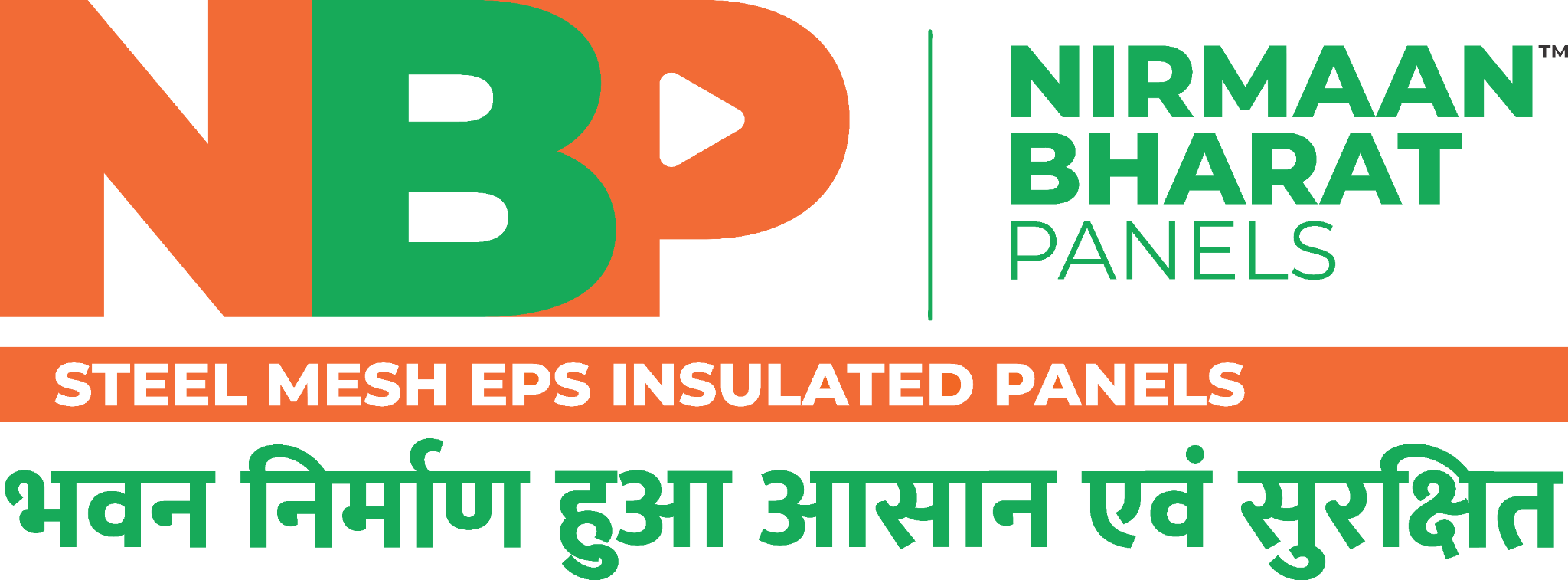The construction industry is undergoing a profound transformation to align with the growing demands for sustainability, energy efficiency, and cost-effective solutions. EPS (Expanded Polystyrene) insulated panels have emerged as a game-changing innovation, providing numerous benefits for both the environment and your finances. Lightweight, durable, and thermally efficient, these panels have revolutionized how we construct and insulate spaces.
In this blog, we explore how EPS insulated panels support environmental conservation while delivering substantial cost savings, making them the ideal choice for modern, eco-conscious construction projects.
Table of Contents
ToggleWhat Are EPS Insulated Panels?
EPS insulated panels are composed of a rigid expanded polystyrene foam core, sandwiched between two outer layers, typically made of metal, structural boards, or other durable materials. The foam core serves as an excellent thermal insulator, while the outer layers add strength and durability. These panels are highly versatile, making them suitable for various applications across residential, commercial, and industrial construction.
Environmental Benefits of EPS Insulated Panels
1. Energy Efficiency and Reduced Carbon Footprint
EPS Insulated panels are renowned for their exceptional thermal insulation properties. By maintaining consistent indoor temperatures, they minimize the need for excessive heating or cooling, reducing energy consumption. This directly lowers greenhouse gas emissions, contributing to a reduced carbon footprint.
Example: Buildings using EPS panels can achieve energy savings of up to 50% on heating, ventilation, and air conditioning (HVAC) costs compared to traditional insulation materials.
2. Sustainable Manufacturing Practices
The production process for EPS foam is resource-efficient, requiring less energy and water than traditional materials like concrete or brick. Modern EPS manufacturing techniques also generate minimal waste, and leftover material can often be recycled into new products.
3. Recyclability and Circular Economy
EPS is 100% recyclable and can be reprocessed into new insulation products or repurposed for other plastic-based applications. This promotes a circular economy, reducing landfill waste and conserving resources.
4. Reduced Transportation Impact
EPS panels are lightweight, which significantly reduces fuel consumption and carbon emissions during transportation compared to heavier construction materials like steel or concrete. Their ease of handling also minimizes the need for heavy machinery on-site, further decreasing environmental impact.
5. Minimized Construction Waste
EPS panels are manufactured to precise dimensions, reducing on-site cutting and waste. Additionally, their modular design allows for easy assembly and disassembly, making them reusable in future projects.
Financial Benefits of EPS Insulated Panels
1. Lower Energy Costs
The superior insulation provided by EPS panels helps maintain comfortable indoor temperatures, reducing the load on HVAC systems. This results in considerable reductions in energy expenses.
Case Study: A commercial building retrofitted with EPS panels reported a 30% reduction in annual energy expenses within the first year.
2. Affordable Installation
Lightweight and easy to handle, EPS panels reduce installation time and labour costs. Their modular design allows for quicker assembly, leading to faster project completion and lower overhead expenses.
3. Durability Equals Lower Maintenance Costs
EPS panels are resistant to moisture, pests, and harsh weather conditions, ensuring longevity and reducing maintenance expenses. Unlike materials like wood or brick, EPS panels require minimal upkeep over their lifespan.
4. Enhanced Property Value
Buildings constructed with energy-efficient materials like EPS panels often command higher property values. Their sustainability and cost-saving advantages make them attractive to environmentally conscious buyers and investors.
5. Versatility Across Applications
EPS panels are suitable for a wide range of applications, including walls, roofs, cold storage facilities, and prefabricated structures. Their adaptability ensures cost savings across different construction needs.
Why Choose EPS Insulated Panels?
1. Superior Thermal Insulation
EPS panels have a high R-value (thermal resistance), providing excellent insulation for diverse climates—whether freezing winters or scorching summers.
2. Fire Safety Compliance
EPS panels are treated with fire-retardant materials to meet stringent safety standards, making them a safe choice for residential and commercial buildings.
3. Moisture and Mold Resistance
The closed-cell structure of EPS foam prevents water absorption, safeguarding buildings from mold and mildew. This feature enhances their durability and reduces maintenance requirements.
4. Effective Soundproofing
EPS panels provide excellent sound insulation, making them ideal for environments where noise reduction is crucial, such as schools, hospitals, and office buildings.
5. Customizable Options
Available in various sizes, thicknesses, and finishes, EPS panels can be tailored to meet specific project needs. This flexibility allows for creative and functional architectural designs.
Applications of EPS Insulated Panels
1. Residential Buildings
EPS panels are widely used in residential construction for walls, roofs, and floors, helping homeowners achieve energy efficiency and lower utility bills.
2. Commercial and Industrial Buildings
From office complexes to warehouses, EPS panels offer thermal efficiency, durability, and quick installation, making them a preferred choice for large-scale construction.
3. Cold Storage Facilities
EPS panels are ideal for cold storage units due to their superior thermal insulation, ensuring consistent temperatures for perishable goods.
4. Prefabricated Structures
Their lightweight and modular nature makes EPS panels perfect for prefabricated homes, offices, and emergency shelters, enabling rapid construction.
Addressing Common Myths About EPS Insulated Panels
1. “EPS Panels Lack Durability”
Contrary to this misconception, EPS panels are engineered to withstand heavy loads, harsh weather conditions, and prolonged use. Their durability is on par with, or even superior to, traditional materials.
2. “EPS Panels Harm the Environment”
While EPS is a plastic-based material, its recyclability, long lifespan, and energy-saving properties make it an environmentally friendly choice.
3. “EPS Panels Are Expensive”
Though the initial investment may seem higher, the long-term savings in energy, maintenance, and construction costs make EPS panels a highly cost-effective option.
Nirmaan Bharat Panels: Your Partner in Sustainable Construction
At Nirmaan Bharat Panels, we specialize in producing high-quality EPS insulated panels that meet the highest standards of performance, durability, and sustainability.
Why Choose Us?
- Top-Tier Quality: Our panels undergo rigorous testing to ensure they meet international standards.
- Tailored Solutions: We provide customizable designs to suit diverse construction needs.
- Eco-Friendly Practices: Our manufacturing processes prioritize sustainability and resource efficiency.
- Expert Support: Our team offers guidance throughout your project, from planning to installation.
Conclusion
EPS insulated panels represent a paradigm shift in construction, offering unparalleled environmental and financial benefits. By choosing EPS panels, you contribute to a sustainable future while enjoying significant cost savings. Whether for residential, commercial, or industrial use, EPS panels are the smart choice for modern, eco-conscious construction.
Partner with Nirmaan Bharat Panels to build a sustainable future today. Contact us to learn more about our innovative EPS insulated panels and how they can elevate your next project.
FAQs About EPS Insulated Panels
Q1. What are EPS insulated panels made of?
Ans: EPS insulated panels consist of expanded polystyrene foam sandwiched between durable outer layers, typically metal or structural boards, offering excellent insulation and structural strength.
Q2. How do EPS panels contribute to energy efficiency?
Ans: EPS panels provide superior thermal insulation, reducing heating and cooling needs, which leads to lower energy consumption and utility bills.
Q3. Are EPS insulated panels environmentally friendly?
Ans: Yes, EPS panels are 100% recyclable, lightweight for reduced transportation impact, and manufactured with minimal waste, supporting sustainable construction practices.
Q4. Can EPS panels withstand harsh weather conditions?
Ans: Absolutely. EPS panels are durable, moisture-resistant, and treated for fire safety, making them suitable for various climates and conditions.
Q5. Where can EPS insulated panels be used?
Ans: EPS panels are versatile and ideal for residential buildings, commercial spaces, cold storage facilities, and prefabricated structures.



